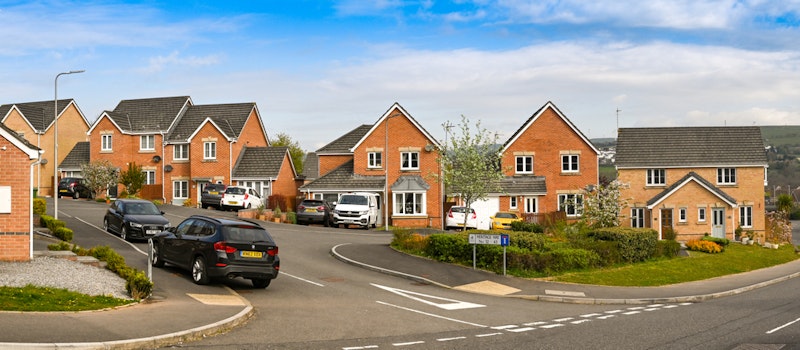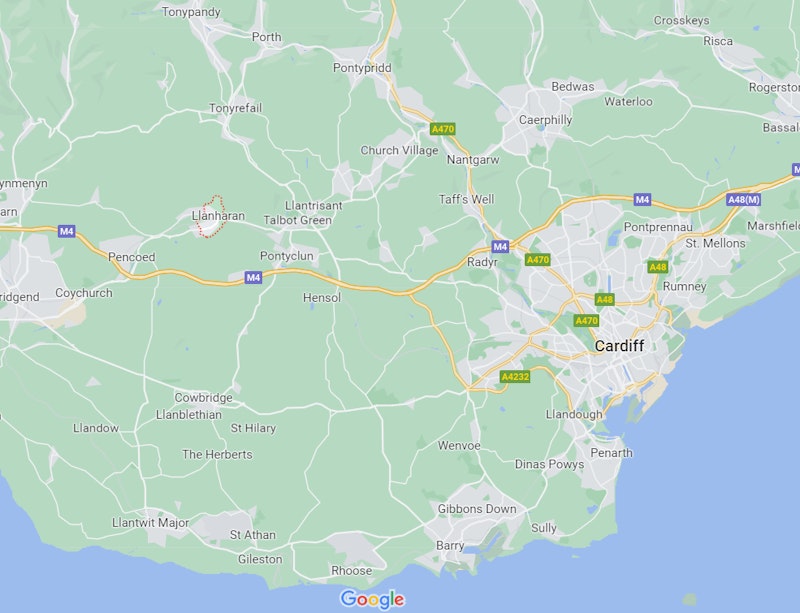In the News
A great opportunity to hone those DME skills! Should Llanharan have a bypass?
9th August 2023
Educational rationale: Decision making exercises are common in GCSE courses, notably AQA, and also included in some A Level courses too. It is a critical thinking skill held in high regard by Ofsted, exam boards and schools.
This DME is on a topical issue reported in the Financial Times 2023. Students have ample information to help them come to a geographical decision, also included for use after the exercise is what was actually decided to tackle the issue in Llanharan.
Original article here -
https://www.ft.com/content/991...
Should Llanharan have a bypass?
The issue:
Welsh town left on road to nowhere after Cardiff scraps new bypass.
Environmentalists hail ‘world-leading’ curbs on new highway projects as angry locals worry about economic impact and increased pollution.
At the edge of the St Ilid’s Meadow housing development, in Llanharan, south Wales, two traffic signs inform drivers the national speed limit is in force. But, just beyond, the road ends abruptly at a gate and gives way to scrubland overgrowing an old opencast coal mine.
The dead end is one of several around the town that testify to how developers had for years anticipated connecting those roads to a new high-speed bypass as part of plans to add 1,850 homes to the area. Many locals were supportive, believing the new arterial network would relieve pressure on the cramped, Victorian high street that runs through the town, 15 miles west of Cardiff.

Yet on February 14 this year, the Llanharan bypass was one of 31 road-building projects in Wales cancelled by the devolved government in Cardiff. The Labour-run administration said it was no longer appropriate, given its decarbonisation targets, to authorise any new roads that provide greater capacity for private car journeys or allow increased vehicle speeds.
Arguments for the bypass:
The controversial decision has caused an outcry in some Welsh communities that have lost their new roads, which they insist are needed to address their acute transport problems.
Liberal Democrat councillor Neil Feist: ‘All these new commuter houses are still going to be built — but no bypass’ © Francesca Jones/FT
Neil Feist, a Liberal Democrat member of Llanharan, community council, expressed the widely felt frustration. “The whole thing has just reached a tipping point,” he said. “All these new commuter houses are still going to be built — but no bypass.”
Lee Waters acknowledged the disquiet in the communities that had lost out. Further north in Llanbedr, on the Welsh coast, locals blocked the road through the village in protest at the cancellation of a planned bypass earlier this year.
“All of a sudden, we’re taking away from them without giving them a copper-bottomed guarantee of an alternative,” Waters said, adding the “big challenge” was to deliver alternatives to car travel quickly enough to reassure residents. “Managing that is a challenge because money is short and these things take a long time.”
Feist said that was a problem for Llanharan as it had little provision to encourage walking or cycling and the train service was “erratic”.
Arguments against the bypass:
But speaking at the Welsh government offices in Cardiff, Lee Waters, Wales’s deputy climate change minister, in charge of transport policy, told the Financial Times there was no turning back. “I care more about tackling climate change than winning my seat,” he said. “The nature and the severity of the threat are existential.”
He said drastic action was vital. Greenhouse gas emissions from transport in Wales fell only 6.3 per cent between 1990 and 2019, the last year before coronavirus disruption, compared with a cut of 35 per cent from both electricity generation and industry, he added.
“Unless someone is prepared to pull the handbrake on this, we’re never going to match our rhetoric with our actions,” Waters said. He added there was “huge cognitive dissonance” in Wales around the country’s commitment to reach annual net zero carbon emissions by 2035.
“Everyone signed up for the high-level targets,” Waters said. “As soon as we shift from the general to the particular, people run a mile. People concurrently want us to get to net zero by 2035 but they want us to continue building rural bypasses.”
The key questions this bold experiment must answer are whether it is the best way to cut carbon emissions from transport and if the economic price is worth paying.
The cancellation of the 31 projects was based on the argument that building more road capacity merely encourages more car journeys. Studies have shown that some projects have resulted in the same congestion levels that prompted the expansion in the first place.
Waters said the UK’s other devolved administrations — in Scotland and Northern Ireland — were watching closely and that the initiative had also attracted interest from Sweden and Spain.
In late June, the Climate Change Committee, the UK government’s independent adviser, recommended the Westminster administration undertake a similar review of its road-building programme for England.
The UK government said the growing take up of electric vehicles meant it was “on a clear path to net zero” despite its plans to continue road building. “Our road investment strategy is designed for all vehicles including greener cars, buses, vans and [heavy goods vehicles],” it added.
But Waters pointed out that the CCC had said a switch to electric vehicles was a “necessary but not sufficient” step towards net zero. The committee has said that increased use of cycling, walking and public transport — which Waters’ policies aim to encourage — can cut emissions more quickly and cost-effectively.
“The UK Climate Change Committee makes it clear . . . that we do need to decarbonise our cars but that’s not going to be enough to hit the very steep, stretching targets we have,” Waters said.
However, Natasha Asghar, the Conservative shadow transport minister in the Welsh assembly, dismissed the Labour government’s road policies, which include a default 20mph speed limit in urban areas, as “ludicrous”, adding: “We don’t have a strong economy to make these radical changes.”
Stephen Glaister, emeritus professor of transport and infrastructure at Imperial College, was also critical of the approach in Wales, dubbing it a “back-to-front policy”. He added: “To try to reduce traffic by not providing the capacity is likely to be counter-productive . . . You’re likely to produce congestion.”
The Welsh arm of the Friends of the Earth environmental campaign group has hailed the move, which gave the go-ahead to just 17 projects, as “world-leading”.
The task - a nice nine marker!
To what extent do you agree that the Llanharan bypass project should go ahead? Use evidence from the news article to support your arguments.

So what actually did happen?
The traffic-dogged village of Llanbedr will now get a new road, two years after a bypass that campaigners had sought for 60 years was scrapped. The Welsh government axed the Llanbedr bypass in 2021, citing concerns about climate change.
Campaigners said Transport Minister Lee Waters has now told them the Welsh government would support a new low-speed plan, and a "scaled-down" road option. The minister caused a row in 2021 when the one-mile (1.5km) Llanbedr Access Road was axed just months after it was given the go ahead. It was an early act of the review of Welsh government road projects, which effectively ended all major schemes. The original plan was proposed because of severe tailbacks during the summer, caused by tourists visiting attractions in the area.
Campaign group POBL said on Facebook that Mr Waters "has agreed to a package for the future of Llanbedr which includes financial backing, pavements, footpaths, cycle paths, sustainable travel... and yes a low speed relief road around Llanbedr high street.
Locals have said...
Beti Miller, who has lived in Llanbedr all her life, said: "I think it's absolutely marvellous, I really do. We've worked so hard in protesting about this bypass and it's about time something was really done about it."
Nigel Passmore also welcomed the news, describing traffic in Llanbedr on a busy day as "horrendous". "We're delighted. It will make things so much better," he said. "It means everything, particularly for the people who have lived here for so many years and have been putting up with this for so long."
The new plan would see the road moved "sideways" - where the A496 would be closed through Llanbedr. That would result in drivers travelling at speeds more like that of the original road, to avoid generating additional or "induced" traffic" and keeping vehicle speeds to around 40mph.
You might also like
The USA has seen a fall in CO2 emissions
14th January 2021
Weekly Geography In The News Quiz - 25 June 2021
25th June 2021

Weekly Geography In The News Quiz - 21 January 2022
21st January 2022

How Good is AI at A Level Geography?
4th January 2023

Flag of the Week - 13th March 2023
12th March 2023

2023 - A Year of Extreme Weather
8th January 2024